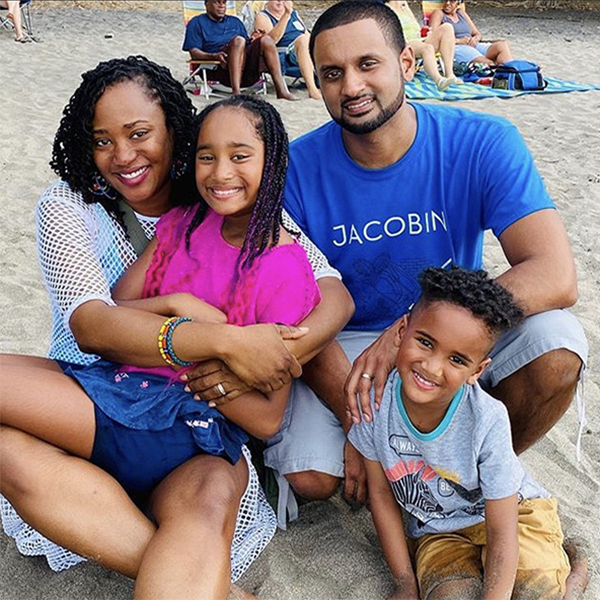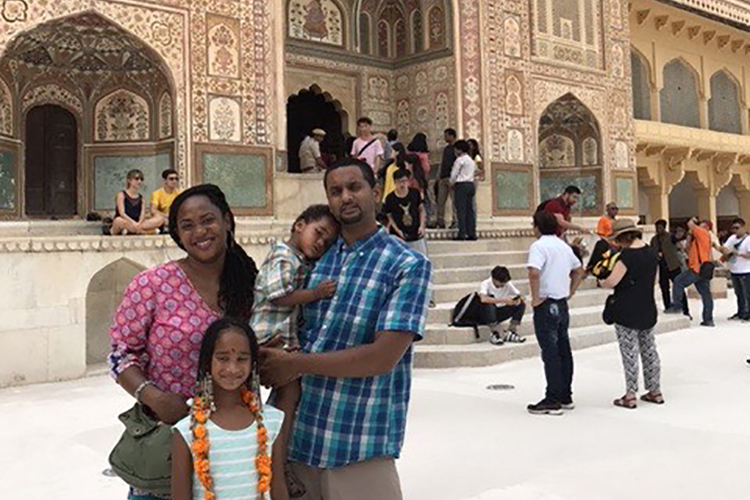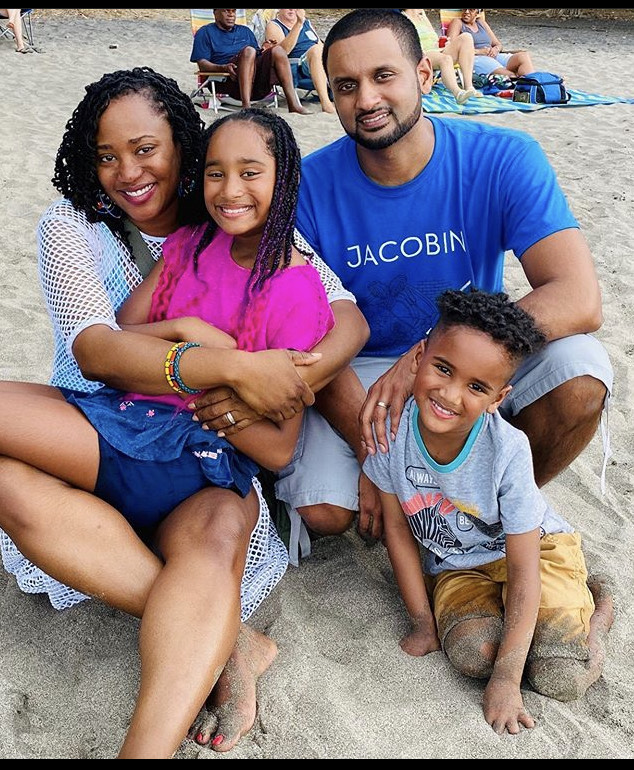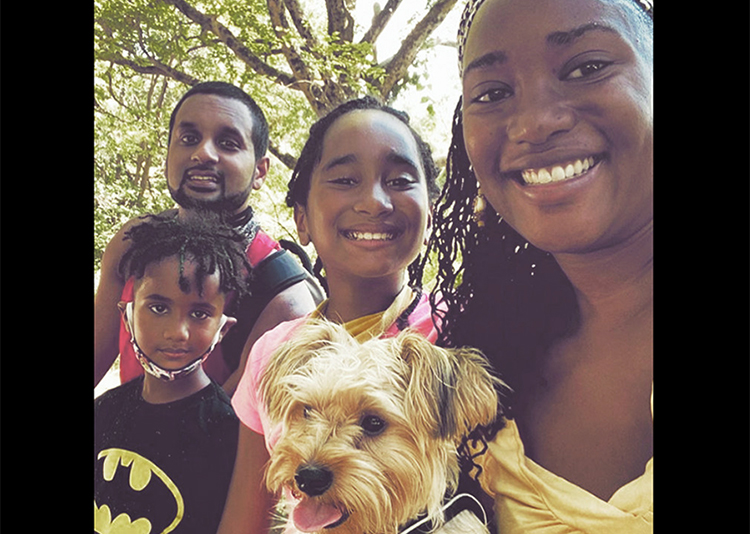My name is Keisha Mathew. My daughter who is nine years old, her name is Sunseray Anama Mathew and I have a son who is five years old. His name is Sekou Cyriac Mathew.
So this is one of those areas where it's very easy for us to have the conversation about inequalities, and police brutality, that is like more of a difficult conversation for me, as I think about being black and then the men in my family, things that they have been through with just gun violence, not necessarily police brutality. But the times where I've been in the car with my daughter and being stopped for a silly stuff, and then realizing like, oh, that was with my car that I own. And I swear, I got pulled over so much. I was like, "It's because of my name Keisha or something?" And then when we got a new car, it's in my husband's name, I never get pulled over.
So it's still really started making me think, "Is this attached to my name?" Because I hear when they're driving behind people, they can just easily trace me, "Okay, this person is okay. Or, Oh, this person has a name that I should probably pull them over." That was in the back of my head as far as trying to even wrap my head on how to explain that to my kids. But as far as, we framed it in a macro level, so it was really about like inequalities and why certain things happen to black people that don't happen to others. And they're libraries in their rooms, as well as the library that we have, it's filled with these topics. We have images around the house that is about, of course having them know that they're loved, that being dark as beautiful, being brown, “melanated” is the word that we always use.
So that wasn't hard. The hard part was just... it made me realize I have to work on my stuff, because how am I narrating to my kids? Because I'm sure a lot of parents feel this conflict inside with, I want to let them know stuff, but I want to spoon feed them. So it's not like mommy just dropped a whole bunch of stuff. In due time, they’re going to find that out. And it's not like me trying to hide that from them. It's like me trying to understand child development. How much can I tell you without it messing you up?
Just for context, we used to live... First, before kids, we lived in South Shore. Then when we had our daughter, we lived in Hyde Park and then we now live in West Ridge. That conversation really came up in a louder way after my son was born. Because so my family, my immediate family lives in Arizona and the reason why they lived there, first it was because my sister moved there, she had just had her son and she had him a little bit after my youngest brother got murdered. And so she was terrified. She was like, “I'm out of here. I'm tired of this.” And mind you, there's been like, I'd say a handful of males in my family that have died of gun violence in different ways. My middle brother, he died of Lou Gehrig's disease, but that was kind of like a cloud for us, like, all this death and it was getting to a point where my sister was like, "I'm done, I can't do this anymore. I can't live here anymore."
And she was living in Uptown at the time and my brother got killed on Howard Street. And then I was still in college. And I'm telling you this because I want you to understand what the conversation was when I was talking to my husband. So then my mom left then my other sister left and she was living in Englewood at the time. I think she just... she just left. But anyway, with that being in the back of my head, after my son was born, it's something about once I had my son, it was like this hyper, super anxious feeling about where do we live? What is going to make sense if we stay here? Because to be straight up with you, it was around that time I was like, "Let's move to another country." I was like, "Let's just go." Because I felt like that energy, like is this what my sister was feeling at that time? And I didn't want that feeling. To be straight out with you, I didn't like that because she has always been a voice in my head, because she was like my second mom, as far as her age. She always taken care of me and stuff while my mom worked a lot. So anyway, that was like the first thing. I was like, "Let's just move." But he was, "No. I love you and blah, blah, blah." I'm like, "Okay fine." And of course we got a whole community here and that's good, but at the same time it was that traumatic experience of my own family situation that made me start thinking like, "Hmm."
And then every so often they would ask me, "So are you still gonna live there? So we moving?" And it was just constantly that, that it's like, please stop. So then that was a thought. And then what brought us over here, like I said, it was mainly the school situation and not being able to find housing that I will feel comfortable with having kids. And then working in social work, because I worked all over the city, and my thought was like, "Wherever I live, it needs to be different from where I work." Just spiritually speaking. I didn't want to go home to the same energy that I was just working in. So I wanted to have something that was totally different. And being that he works for CPS, we can't move out to like the 100s or whatever. It has to be in the city. So what was close enough for me where I was like, well, We moved North, when I was in fifth grade, I spent most of my formative years on the North side. So I was like, "Well, that's familiar to me. And it's real diverse. We won't stick out." Does that make sense? And so I was like, "Okay, let's look at that. The school ratings look decent, let's check that out."
So that was the discussion as far as like, what was his thoughts and did he have any pushback? No. Because he knew I lived here. He knew my whole back story with family, trauma, deaths and all that. And he trust my judgment as far. And he worked in Uptown. So he really liked Uptown as far as his familiarity with the North side. And that was a question, "Are you sure you want to move that far North from all of our friends?" And I was like, "They got cars, don't they? We got CTA. We'll be fine. We drive to them." I have friends that have moved all the way South, in the suburbs, all over the place. I'm like, "That's not a big deal. We're not moving out the country." So yeah, that was a decision.




